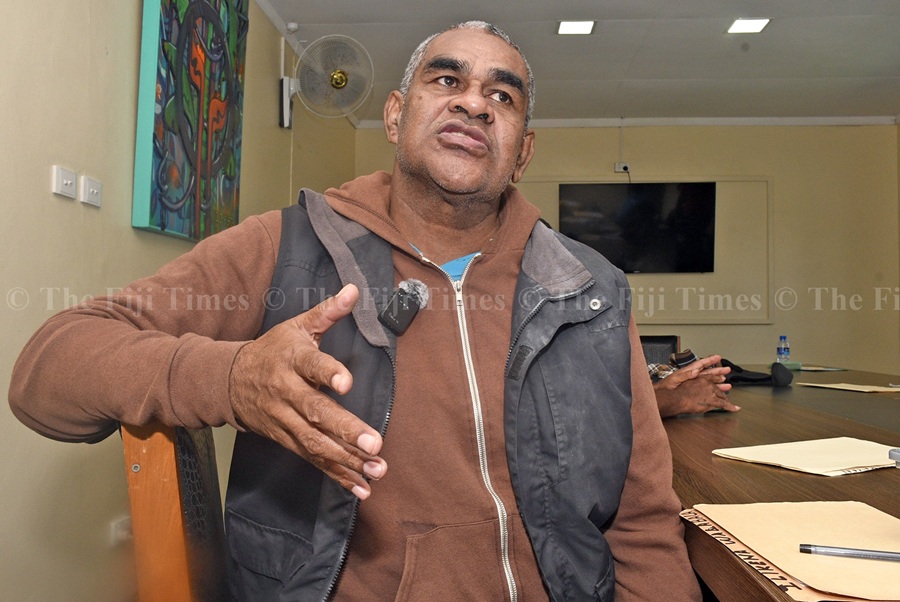At the bus stand in Suva, Ilikena Waqabaca struggles to board the bus every day. The distance between the ground on which he stands and the first step of the doorway to the Raiwaqa bus is one of the hardest steps he has to take.
A stroke survivor, the 53-year-old man from Ketei Village in Totoya, Lau has been living with mobility challenges for more than 10 years.
“Sometimes, when the steps to the bus are too high, that becomes a problem for people like us to access,” he said.
“I used to struggle a lot just to get on the bus and I previously hated boarding the bus for this reason. But today, I choose to board the bus even if I’m given taxif are.”
In 2015, he was getting ready to supervise fourth formers sitting for exams.
“I lived at the Ratu Kadavulevu School quarters at the time. As I was walking that morning to the classroom, I didn’t realise I was staggering. In my mind, I was walking very normally and there was nothing wrong.
“Other people saw me staggering and I had to go back home and lay down. A cousin, who was a teacher at the school, then brought his car and rushed me the dispensary.”
Mr Waqabaca was referred to Korovou Hospital and later rushed to the Colonial War Memorial Hospital in Suva by ambulance.
“In Suva, a scan was done and the doctors found a blood clot that had burst when my pressure went up.”
He was admitted at CWM Hospital for two weeks, and later transferred to Tamavua Rehabilitation for two more weeks.
“I kept forcing myself, pushing myself. I asked the doctor to let me go home because apart from having breakfast, taking medication, and doing physiotherapy, all we did was lay in bed. It’s been more than 10 years since I had the stroke. I told myself then I would not let this stroke get the better of me.”
Refusing to be a burden to his family, Mr Waqabaca set small goals for himself.
“I told myself, before Christmas and New Year, I will have to take myself to the bathroom and toilet. And that’s what I did – I achieved my goals.”
With the loss of his only child in 2013, and the end of his marriage in 2016, he did his best to stay positive in the years that followed.
“I kept reminding myself that this isn’t the end of my life — this is the beginning of a new life. I’ve been on my own since then and am hoping to find work soon so I can support myself. Sometimes our family members complain that we lay around too much or don’t do enough. They need to understand our condition and accept how we are after a stroke.”
He said he had asked the doctors if there was a possibility of draining the blood clot in his brain but was told it would be risky.
“Being sick is not the end of the road. I survive with the support of social welfare payments, the help of my relatives and friends and my former rugby teammates.
“Let God lead your life and He will lead you to the things meant for you. Also, listen to what the doctors tell you. Before I got sick, my pressure was high. They gave me medication but I didn’t take it. A few days later, the stroke happened.
“So please, listen to the doctors because they know what they’re saying.”



